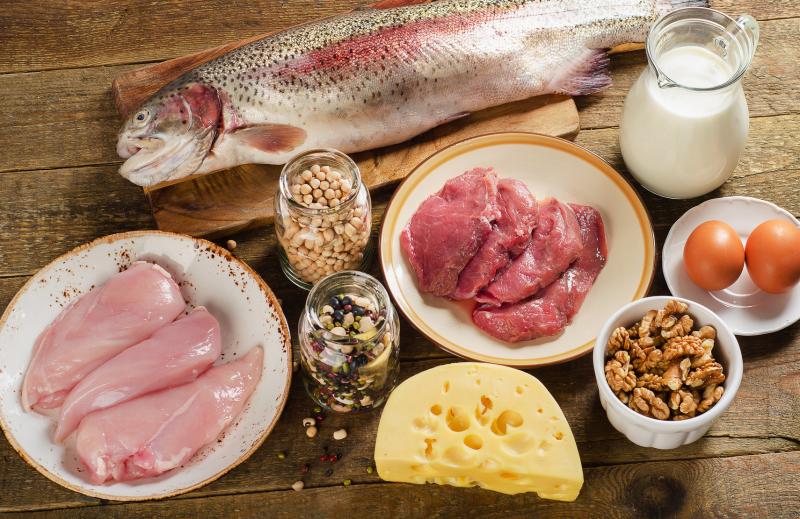 Spread your protein consumption out to ensure you are getting a sufficient and healthy intake.
Spread your protein consumption out to ensure you are getting a sufficient and healthy intake.Higher consumption of animal protein appears to increase the risk of developing kidney stones, according to a study involving a population with a relatively low animal protein intake and a high plant protein intake in Shanghai, China. Increasing the proportion of plant relative to animal protein may protect against this risk.
Overall, 1,451 men and 1,202 women reported incident stones during 319,211 and 696,950 person-years of follow-up. The average consumption per day of animal and plant protein standardized to 2,000 kcal was 31.3±13.7 and 48.4±7.2 gm in women and 30.8±13.3 and 51.3±7.6 gm in men, respectively.
Multivariable analysis revealed an increased risk of incident stones among participants in the highest quintiles of animal and nondairy animal protein intake compared to those in the lowest quintiles (hazard ratio [HR], 1.16, 95 percent confidence interval [CI], 1.01–1.32; p=0.03 vs HR, 1.14, 95 percent CI, 1.01–1.30; p=0.04).
The highest intake quintiles of animal-to-plant protein ratios (HR, 1.17, 95 percent CI, 1.03–1.33; p=0.02) and nondairy animal-to-plant protein ratios (HR, 1.20, 95 percent CI, 1.06–1.36; p=0.005) positively correlated with stone risk compared to the lowest quintile. Association with plant protein intake (p-trend=0.14) was not observed.
This study obtained dietary intakes from a validated food frequency questionnaire at baseline. Self-reported stone events were ascertained at baseline and at follow-up visits. The associations between protein intake and incident stone risk were assessed using multivariable Cox regression models.
“High animal protein intake is a risk factor for nephrolithiasis,” the authors noted.